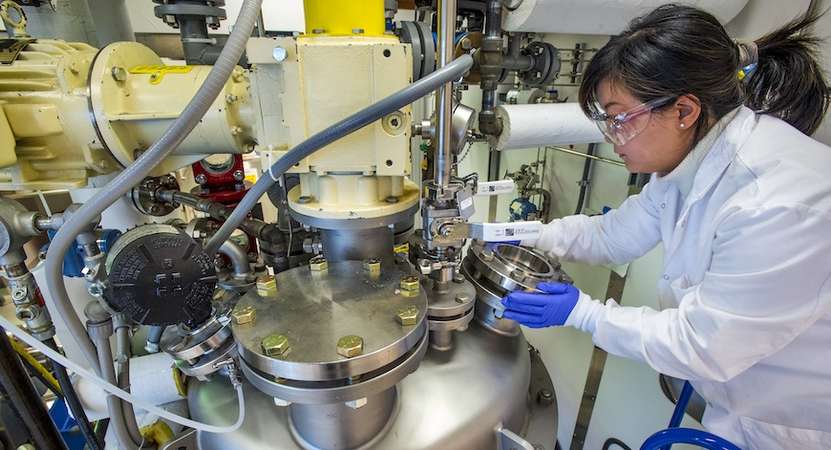The U.S. National Science Foundation’s (NSF) Regional Innovation Engines program awarded the Circular Bioeconomy Innovation Collaborative (CBIO Collaborative) a $1 million for “Advancing Circular Bioeconomy Technologies in North San Joaquin Valley.”
The CBIO Collaborative is a regional effort with partners from throughout the Northern San Joaquin Valley to create an ecosystem designed to accelerate the development of innovations in bioindustrial manufacturing and improve environmental sustainability across the food and agriculture supply chain. The team is led by the University of California (UC) Merced, BEAM Circular, and Lawrence Berkeley National Laboratory.
“The NSF Engines Development Award is a vital investment in the ambitious but attainable goals we have set, providing us the time and resources to create an inclusive plan to leverage our region’s rich agricultural assets and innovation potential to establish sustainable industry and jobs in the North San Joaquin Valley,” said Paul Maglio, PhD, director of the division of management and information at UC Merced.
The joint effort builds upon the BioEconomy, Agriculture, & Manufacturing (BEAM) Initiative, a new strategy for growing regional leadership in the bioeconomy that was catalyzed by inclusive economic development planning initiative Stanislaus 2030.
“This collaboration is about generational change,” noted Karen Warner, project co-director and CEO of BEAM Circular, a new hub for the bioeconomy launched in conjunction with nonprofit organization Opportunity Stanislaus. “The North San Joaquin Valley is positioned to lead the way on transformative innovations in the bioeconomy that support local communities, strengthen our food system and advance global environmental solutions.”
“Innovation in biomanufacturing is at a tipping point,” noted Deepti Tanjore, PhD, project co-investigator and director of the advanced biofuels and bioproducts process development unit at Lawrence Berkeley National Laboratory. “We need direct leadership from agricultural communities to scale up our most promising opportunities. CBIO Collaborative will offer opportunities for leading scientists and innovators in this sector to connect directly with upstream and downstream collaborators, as well as to build up the local talent pipeline we need to bring these innovations to market.”


